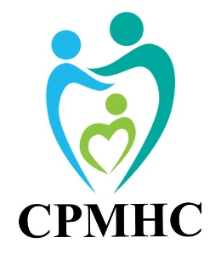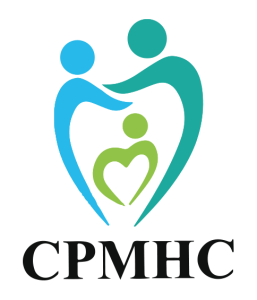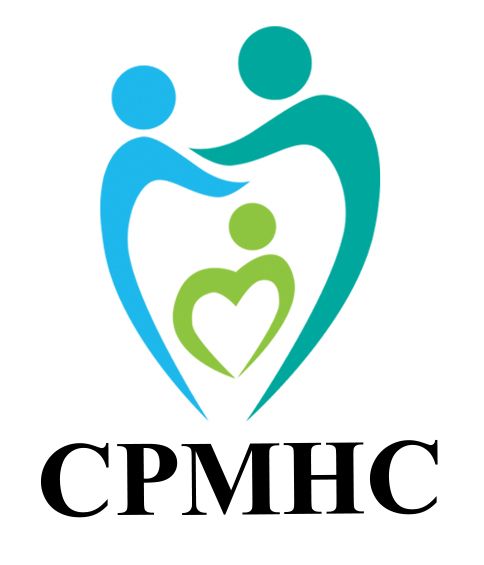2SLGBTQIA+ and BIPOC Perinatal Mental Health
Cis-gendered women and trans men who give birth can experience perinatal mental illness. Individuals of every culture, age, income level and race can develop perinatal mood and anxiety disorders. However, marginalized populations, such as 2SLGBTQ2IA+ people, members of the Indigenous community, the Black community and other racialized communities, adolescents, individuals with histories of substance use, immigrants, refugees, and individuals with disabilities may experience perinatal mental illness at higher rates.



Black Individuals
Black individuals are twice as likely to experience perinatal mental health challenges but are half as likely to receive treatment.
During Black History Month, the CPMHC did an Instagram live interview with Berlinda Afranie-Frimpong, a Canadian labour and delivery nurse who surveyed Black mothers on their maternal health care experience in Canada. The mothers told Berlinda that health care organizations provided insufficient perinatal provisions. They also discussed feeling neglected by healthcare providers, and that practitioners had preconceived health care biases.
Watch our interview here: https://www.instagram.com/tv/Co0ZWftJ_8H/?igshid=NmQ4MjZlMjE5YQ==
Indigenous Individuals
At the CPMHC, we believe it’s Time for Truth and Reconcili-ACTION!
We’re taking action by following the recommendation stemming from the Voices and PHACES study conducted by Dr. Amrita Roy calling for the creation of Indigenous-specific prenatal and parenting programs in Canada to address the intergenerational effects of residential school trauma.
Thanks to all your support for Flora’s Walk, the CPMHC was able to donate a portion of the Community Pot funds to support the Biigtigong Mno-zhi-yaawgamig Pic River First Nation Health Centre who is partnering with the Marathon Family Health Team in the creation of an Indigenous arts-based perinatal support program in two rural communities.
“Looking forward to putting on a program that supports Biigtigong, Marathon and surrounding communities with the funds! Miigwetch to everyone for the help in making this happen.” – Kelli Johnson, Mental Health Worker
According to a study published in the Canadian Journal of Psychiatry, Indigenous mothers are 20 per cent more likely to suffer from prenatal depression and PPD than white, Caucasian mothers in Canada.
When working as a journalist for HuffPost Canada, CPMHC Executive Director Patricia Tomasi reached out to Amrita and learned how she carried out interviews with pregnant Indigenous women and service providers to find that chronic life stress and trauma are key causes of prenatal depression in Indigenous women.
“The answer lies in the historical and present-day societal context of Indigenous women shaped by factors such as racism, sexism, domestic and sexual violence, and intergenerational trauma from residential schools and other legacies of colonization,” Amrita told Patricia. “Our study results show this quite clearly.”
Almost all of the pregnant Indigenous women interviewed for the study reported being deeply and negatively impacted by having someone in their life — a parent, an aunt or uncle, a grandparent, an older sibling — who survived the residential school system.
“Even though today’s pregnant and Indigenous women parents are generally too young to have attended residential school themselves, they are still impacted by the legacy of that horrific Canadian government policy.”
The CPMHC is committed to taking action today and every day to improve perinatal mental health outcomes for Indigenous people and families in Canada. We look forward to supporting more Indigenous-led programming in communities across Canada.
2SLGBTQIA+ Individuals
2SLGBTQIA+ is an acronym that stands for Two-Spirit, lesbian, gay, bisexual, transgender/trans, queer or questioning, intersex and asexual. The ‘+’ is meant to be inclusive of additional sexual orientations, gender identities and expressions (including but not limited to non-binary and pansexual). Two-Spirit (2S) is a term used by some Indigenous people to describe their sexual, gender and/or spiritual identity, carrying various definitions and meanings for different individuals and communities. Indigenous conceptualizations of diverse gender identities, roles and sexual orientations have existed since time immemorial, yet the term Two-Spirit was coined by Elder Myra Laramee in 1990.
The perinatal period uniquely impacts the mental health and wellbeing of 2SLGBTQIA+ people. Previous or anticipated experiences of discrimination and invisibility, in addition to systems-level inequities, can affect trust in perinatal healthcare providers (HCPs) and the broader healthcare system.
These barriers can also impact equitable access to timely, quality healthcare, thereby contributing to poor physical and mental health outcomes and traumatic experiences.
Action is imperative at the provider level and must also take place at the organizational and health system levels to achieve sustainable change.
According to a Canadian study published in PubMed in 2022, pregnancy, postpartum, and the perinatal period uniquely impacts the mental health and wellbeing of LGBTQ2S+ individuals, largely due to systems-level inequities and exclusion from perinatal care. Healthcare providers should implement the identified strategies to improve perinatal care and address inequities.
The CPMHC is proud to have participated in the conception and development of the Ontario Provincial Council for Maternal and Child Health – Tip Sheet for Healthcare Providers on Providing Inclusive, Affirming and Safer Perinatal Care to 2SLGBTQIA+ Individuals.



